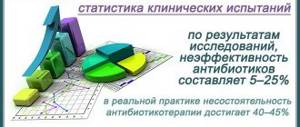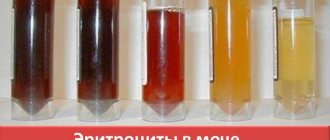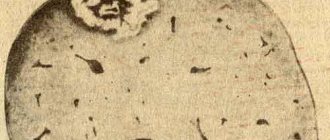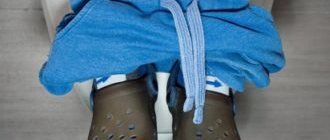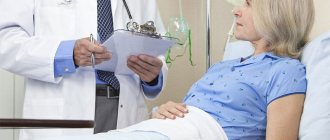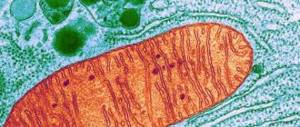Cystitis after childbirth is perhaps the most common phenomenon when it comes to inflammatory genitourinary diseases. Inflammation of the mucous membrane of the urinary organ is more often observed in women due to their anatomy - due to the short and wide urethra, which facilitates the penetration of infection into the urinary tract.
A bacterial infection, the causative agent of which is often E. coli, is directly involved in the development of cystitis; sometimes inflammation is provoked by enterococci, staphylococci, Klebsiella and other pathogenic microorganisms. Infection is caused by hypothermia, impaired blood circulation in the pelvis, hormonal imbalance, neglect of personal hygiene rules, and problems with urine outflow.
Often, women, absorbed in caring for the child, neglect their health without due attention. Postpartum cystitis develops quickly, with characteristic unpleasant symptoms.
At the first signs of cystitis, a woman should immediately consult a doctor to coordinate treatment with breastfeeding.
How does cystitis manifest?
Inflammation of the bladder is manifested primarily by increased urination. At the same time, the woman constantly has a strong urge to visit the toilet, which does not correspond to the amount of urine released. Often a woman notices pain at the end of urination, sometimes blood appears in the urine. Quite often, pain (burning sensation, stinging) can accompany the entire act of urination. In this case, they talk about the occurrence of urethritis - inflammation of the urethra. With acute cystitis, pain appears in the lower abdomen. Due to the appearance of an unbearable urge to urinate, false urinary incontinence may occur - a condition in which a woman feels the urge, but does not have time to run to the toilet. This condition is reversible and goes away after the disease is cured.
Is it possible to play sports with cystitis?
Moderate physical activity is quite acceptable for this disease. Aerobic exercises, swimming in cool water, winter sports and those involving excessive stress on the intra-abdominal area, such as strength martial arts, cycling, boxing, etc. should be limited.
However, physical exercises that evenly load the muscular frame of the body are even welcome for cystitis in women. Because they activate blood supply and regenerative processes in the tissues of the bladder. These include: light running (jogging), walking, basketball and some other team sports. The main condition for this is to wear sportswear made from natural materials that is not tight-fitting and does not restrict movement.
Complications of cystitis
Under unfavorable conditions, the course of cystitis can become more complicated. In this case, pathogens enter the kidney, which leads to the development of acute pyelonephritis - a nonspecific infectious inflammation of the pyelocaliceal system and renal parenchyma. Microorganisms can enter the kidney in two ways:
- through blood vessels (hematogenous route);
- with the development/presence of vesicoureteral reflux - backflow of urine from the bladder into the ureter, kidney - ascending route of infection (so-called reflux - pyelonephritis).
Characteristic manifestations of acute pyelonephritis are a sudden increase in body temperature to 38-39 degrees and above, accompanied by “stunning” chills. Patients often complain of pain in the lumbar region, nausea, and vomiting. It is important to remember that acute pyelonephritis is an emergency pathology and a direct indication for hospitalization. Therefore, even with a single episode of an increase in body temperature to the specified numbers with chills occurring against the background of symptoms of acute cystitis, especially in the postpartum period, it is necessary to be hospitalized in a hospital for emergency reasons.
Causes of problems after childbirth
- The reasons for the inflammatory process are complex. During pregnancy, the immune system weakens. This occurs both from the increased consumption of nutrients and from the action of hormones. Childbirth does not improve the situation; after it, the body returns to normal gradually, and most often a new special condition arises - lactation. You need to pay enough attention to yourself, avoid hypothermia, and eat right. Often, a young mother does not have the opportunity to notice and recognize the symptoms of cystitis in time due to general discomfort in her own body.
- In late pregnancy, the enlarged uterus and fetus put pressure on the surrounding internal organs. Frequent urination at this time occurs for natural reasons. After childbirth, the pressure suddenly stops and a false sensation of an empty bladder appears; there is no urge to empty it, but the need remains. Stagnation of urine provokes inflammation; you should get rid of it in time, remembering that you need to visit the toilet.
- During childbirth, various injuries are possible. As the baby's head moves toward the exit, it can further damage the excretory organs. The microflora of the vagina and urethra is completely disrupted during the treatment of ruptures and suturing.
- During childbirth, other manipulations are performed that increase the likelihood of cystitis. Typically, a catheter is used to hygienically dispose of urine on the chair. It slightly injures the urethra, and the penetration of infection is facilitated.
- The development of cystitis can also be provoked by the consequences of long-term hypothermia from ice on the abdomen, which is placed to contract the uterus.
If you have ever suffered from cystitis, or at the time of childbirth there was a hidden inflammatory process in the body, an exacerbation and resumption of the disease is very likely. Conditionally pathogenic microflora, which normally does not create any problems, can become more active against the background of decreased immunity.
Diagnosis of cystitis
In the vast majority of cases, the diagnosis of acute cystitis does not cause difficulties, since the symptoms of the disease are very specific. However, to confirm the diagnosis, it is necessary to take a urine test, which will reveal an increased number of white blood cells and possibly identify red blood cells. To prescribe the correct antibiotic therapy, it is necessary to do a microbiological analysis of urine, which allows you to identify the sensitivity of the pathogen to a particular antibiotic (urine is placed on a special nutrient medium where the microorganisms that cause cystitis grow, after which the sensitivity of the microbes to antibiotics is examined). As instrumental methods of examination for acute cystitis, ultrasound examination and cystoscopy can be used (a study during which the bladder and urethra are examined with the help of a special device - a cystoscope). However, most often the examination is limited to the study of laboratory test data.
It is very important that during the examination, a woman suffering from cystitis undergoes tests to assess the state of the vaginal microflora and the presence of sexually transmitted infections.
Pregnancy and cystitis
The chronic form, completely unpredictably, can activate cystitis before childbirth or during pregnancy. Due to her “interesting position,” a woman is forced to voluntarily accept a number of restrictions, in particular, to selectively take a number of medications, including antibiotics prescribed for inflammation and exacerbations of various kinds. Infection of one of the genitourinary organs and untimely treatment provoke the spread of pathogens that invade tissues and organs located next to the affected bladder, which significantly increases the risk of premature birth.
Complications include:
- development of intrauterine infections;
- threat of premature termination of pregnancy;
- pyelonephritis;
- sepsis;
- problems with leakage of amniotic fluid.
Taking into account the woman’s physiology, this process can develop quite rapidly; as a result, the infection affects the intestines, kidneys, and ovaries, which naturally worsens the prognosis of pregnancy. Troubles can also be expected from cystitis after childbirth.
Treatment of cystitis
Antibacterial drugs and uroseptics are traditionally used to treat cystitis. The doctor will select a drug whose use does not exclude breastfeeding.
Local therapy is also used, consisting of instillations, i.e. in the introduction into the bladder of special solutions containing various medicinal substances that have an antimicrobial effect.
In parallel, treatment of bacterial vaginosis and sexually transmitted infections is carried out.
To prevent repeated episodes of acute cystitis, when the first signs of the disease appear, it is necessary to visit a urologist and gynecologist and carry out the prescribed treatment in full.
Medical assistance
Treatment involves several types of therapy:
- antibacterial;
- anti-inflammatory;
- diuretic;
- painkiller.
There are a sufficient number of medications that have unique properties that make it possible to eliminate cystitis very quickly.
Unfortunately, it is impossible to resort to the use of these medications when helping women after childbirth, since during this period she is breastfeeding the baby.
For this reason, doctors carefully select medications that will simultaneously provide high therapeutic effectiveness and will not have a negative impact on the baby’s development.
It is for this reason that self-medication is strictly prohibited in order to prevent the most terrible consequences.
Doctors sometimes prescribe the use of antibiotics after childbirth, such as Bactrim and Co-trimoxazole.
Their active substances quickly have an effective therapeutic effect on the bladder.
Also, such substances quickly penetrate into breast milk, but do not provoke any disturbances in the baby’s body.
Unfortunately, with an advanced form of cystitis or with such a variety, when doctors observe complications, it is necessary to use antibiotics such as Furazidin, Fosfomycin.
Such antibacterial drugs are most effective, but at the same time you have to give up breastfeeding for a while.
Urologists can recommend herbal preparations to a nursing mother diagnosed with cystitis after childbirth. Among these drugs, Canephron and Phytolysin stand out.
Sometimes when carrying out therapeutic measures, only these two herbal remedies are sufficient.
They are capable of:
- eliminate pain symptoms;
- improve kidney function;
- carry out an anti-inflammatory effect.
High efficiency in some cases is accompanied by instillations, during which the internal space of the bladder is irrigated with effective medications.
So, treating cystitis in women immediately after childbirth is much easier if the mother in labor immediately seeks medical help.
The treatment process itself, or rather the selection of medications, requires increased attention from the doctor and a high level of caution to ensure that the mother in labor uses effective, but at the same time safe, medications for the health of the baby.
Prevention of cystitis
- Hypothermia should be avoided; to do this, dress appropriately for the weather when walking with your baby.
- Even during pregnancy, or better yet before it, care should be taken to treat chronic inflammatory diseases: chronic tonsillitis, carious teeth, etc., since sources of chronic infection provoke the occurrence of foci of inflammation in other organs, including the bladder .
- During, or better yet before, pregnancy, it is necessary to treat bacterial vaginosis and sexually transmitted infections.
- Wash yourself after every urination and bowel movement. If this is not possible, when going to the toilet, wipe only with movements from front to back and never vice versa.
- It is necessary to ensure that the stool is regular and there is no constipation, since constipation also predisposes to cystitis due to poor circulation in the pelvic organs.
- Change sanitary pads every 2 hours.
- Watch your diet: after giving birth, you should not eat anything hot, sour, fried, spicy, salty, pickled, not to mention alcohol. This condition is not only the prevention of cystitis, but also an essential component of successful breastfeeding.
Konstantin Kolontarev, urogynecologist
Traditional medicine and additional measures
Along with industrial drugs, homemade herbal medicines can also be used for treatment during breastfeeding. Various diuretic drinks made from lingonberries, cranberries, and rose hips have proven themselves to be effective. You can make fruit drinks and compotes or brew lingonberry leaves.
Any kidney teas and teas will help eliminate the infection. For example, a collection with bearberry (1 spoon each of cornflower flowers, bearberry leaves and licorice), a decoction of St. John's wort, birch buds, and corn silk. It is also good to eat millet during the treatment period; it can reduce the inflammatory process and remove antibiotics from the body.
For cystitis, various local heating is often recommended. This effective remedy should absolutely not be used after childbirth, as it may cause increased bleeding.
Factors that provoke the development of bladder inflammation in women
The occurrence of inflammatory processes in the pelvic organs in women is promoted by many reasons. This includes promiscuity, non-compliance with the rules of intimate hygiene, and the constant use of constricting synthetic underwear that impedes normal gas exchange. If we exclude these obvious factors that provoke the development of cystitis, the most common causes of the disease are the following:
- Colpitis and STDs. Due to the small distance between the urethra and the vagina, if the latter is infected with pathogenic microorganisms, the likelihood of pathogens entering the bladder is extremely high.
- Disturbances in the functioning of the digestive tract. Bacteria from the intestines during colitis and other intestinal disorders can also enter the urethra, provoking the development of an acute form of cystitis.
- Nephrological diseases: pyelonephritis, nephritis, disorders that cause urinary retention, can cause the development of severe forms of inflammation of the bladder.
- Atypical hormonal conditions, which include menopause, pregnancy, ovulation, etc. Changes in the level of hormones in a woman’s body inevitably entail a change in the composition of the microflora of the mucous membranes of the genitourinary system.
- Some endocrine disorders, especially diabetes.
There is also an increased risk of cystitis in cancer patients undergoing chemotherapy, laser therapy, and allergy sufferers.
Genesis (reasons) of development
The process of childbirth itself is stressful for the female body. And physiological immunosuppression (suppression of immunity), which accompanies the expectant mother throughout the gestational period (pregnancy period), is an excellent background for the development of inflammatory reactions in the bladder reservoir. If a weakened body does not have time to use its energy reserve, cystitis can be caused by any disturbances caused by childbirth.
Bladder dysfunction
- The absence of micturition (urination) urge, even when the bladder cavity is full, is noted after childbirth in many women. This is due to a decrease in the usual pressure of the uterus on the bladder, the development of hypotension (decreased tone), swelling, and an increase in bladder volume, which is manifested by excessive accumulation of urine.
The sensitivity of the bladder is affected by: fears of pain, pushing accompanied by muscle spasms, or painkillers used during childbirth. Loss of sensation in the bladder may be a consequence of damage or compression of nerve endings when the baby passes through the birth canal, or due to the nervous shock of the woman in labor.
- Frequent urges and abundant micturition are caused by the removal of excess fluid from the body, this is a natural process after childbirth, but the paucity of micturition with frequent urges indicates the onset of an inflammatory process in the bladder cavity or urethra - a lack of urine creates excellent conditions for the introduction of pathogens into the mucous membrane lining of the urinary organs.
- Painful micturition, observed after delivery, may be a consequence of an existing inflammatory process in the bladder or urethra, or when urine gets into fresh ruptures and abrasions received during childbirth. If the pain, burning and pain do not go away within three days, a medical consultation is necessary.
- Urinary incontinence often develops after a difficult birth (stress incontinence), when the birth of a child is accompanied by ruptures. Such disorders are also observed after a normal birth, which is explained by stretching and loss of elasticity of the pelvic muscles, which contributes to dysfunction of the obturator valve apparatus of the bladder. Therefore, even with a slight increase in abdominal pressure (laughter, cough), the bladder allows urine to pass out.
Immunosuppression: weakening of the immune system
The weakness of the body's immune functions after the birth of a child reduces the local immune defense of the bladder tissue, which is facilitated by:
- postpartum changes in hormonal levels;
- complications of the birth process requiring surgical intervention, which is associated with severe blood loss;
- expenditure of the body’s energy resources on the processes of producing nutrients and milk to feed the child;
- exhausting long labor and resulting injuries;
- depressive and psychological postpartum conditions;
- inadequate and unbalanced diet;
- chronic lack of sleep and fatigue;
- exacerbation of chronic and endocrine diseases.
Birth injuries
Some injuries received during childbirth can ultimately provoke the development of inflammatory processes in the reservoir cavity of the bladder. Weakened immunity promotes the activation of microbial flora, and the suitable environment of bloody wounds serves as an excellent breeding ground.
The process of childbirth causes in women a violation of the integrity of the birth canal as a result of its expansion, which provokes the formation of superficial (abrasions and scratches) and various types of internal injuries, sometimes immediately unrecognized and asymptomatic, which greatly complicates the treatment of cystitis after childbirth.
They become the main, not timely diagnosed source of infection, and the cause of migrating infectious and inflammatory processes. The most common injuries include:
- tears and cracks of the cervix and vulva;
- rupture of the perineum, which causes prolapse of organs and pressure on the bladder, provokes disturbances in blood circulation processes and the development of local tissue necrosis;
- formation of fistulas at the site of compression of blood vessels during childbirth by the baby’s head;
- hematomas of various types, the drainage of which can become a prerequisite for cystitis;
- divergence and rupture of postpartum sutures;
- damage to blood vessels due to clitoral injuries, which is marked by prolonged hemorrhages (bleeding);
- ruptures of pelvic muscle tissue;
- damage to the vesical sphincter;
- stretching and divergence of the pelvic bones, which is accompanied by injuries to the bladder.
Postpartum infections
The development of infectious and inflammatory reactions is promoted not only by genital and extragenital infections, but also by infections and manipulations directly related to the birth process - infections of the genital tract and vagina, uterus and periuterine tissue (parametria), infections of the kidney tissue, and the use of local hypothermia after childbirth ( application of cold to the abdomen), postpartum examinations or catheterization of the bladder.
Some pathologies, in particular myometritis, endometritis or parametritis, predispose to the process of transformation of normal vaginal flora (anaerobic form of coccal flora) into a pathogenic form that causes postpartum infections, which is caused by pathologies during the period of gestation and the birth process:
- The influence of severe nephropathies and gestosis during pregnancy.
- Prolonged labor or prolonged rupture of the membranes.
- Birth injuries.
- Fragments of the placenta remaining in the uterus.
- Postpartum hemorrhages.
All these factors contribute to the growth and penetration of exogenous and anaerobic flora into the cavity of the uterus and vagina, and their further migration into the reservoir cavity of the bladder.
Factors provoking the development of the disease
Stagnation of urine, untreated urogenital infections, and failure to comply with personal hygiene rules in the postpartum period provoke cystitis. Pregnancy and childbirth also become a trigger for the onset of the inflammatory process in the genitourinary system. How does this affect the development of the disease:
- After childbirth, a physiological decrease in immunity and hormonal changes occur. This weakens the body's defenses in the fight against pathogenic flora.
- The baby's head, passing through the birth canal, compresses the blood vessels of the small pelvis. Blood circulation decreases, bladder tissues are poorly enriched with oxygen and do not receive sufficient nutrition.
- The fetal head puts pressure on the bladder and urine stagnation occurs.
- Postpartum discharge provokes vaginal dysbiosis.
- Placement of a urinary catheter, which is sometimes practiced after a complicated birth.
- Ice on the stomach can lead to hypothermia and decreased local immunity. However, it is worth noting that this procedure after childbirth is mandatory. This is done to stimulate uterine contractions and prevent uterine bleeding after childbirth.
- Due to compression of the nerve endings in the pelvic organs, the woman does not feel the urge to urinate. This leads to stagnation of urine.
Cystitis is an inflammation of the mucous membrane of the bladder.
Signs of the disease
Depending on the pathogenic aggressiveness, the symptoms of cystitis after childbirth can manifest as either a bright or blurry clinical picture, sometimes accompanied by signs of urethritis. Signs characteristic of intravesical inflammation usually appear:
- nagging and aching pain in the lower abdomen;
- cutting pain when urinating (at the end of voiding);
- slight discharge of urine with fairly frequent urges;
- possible inclusion of bloody impurities in urine;
- random release of small portions of urine;
- slight increase in body temperature.
Cystitis after cesarean section: how to treat, symptoms, causes
The birth of a child is always a joy for the family, but it can be overshadowed by a disease that often manifests itself in women during the postpartum period - cystitis.
The risk group includes women of any age, regardless of whether they have given birth or not. This is due to the anatomical features of the structure of the genitourinary system.
Bacteria, which are the causative agents of the disease, easily penetrate the bladder, since women have a naturally shorter urethra than men. Because of this, there are practically no obstacles to harmful bacteria.
It is especially common to “catch” cystitis if the genitourinary system is already affected by infection. This can happen when:
- candidiasis;
- gynecological operations performed without observing the rules of asepsis;
- allergic reactions to the fabric of underwear, towels;
- taking strong antibiotics;
Bacterial infection is the most common cause of cystitis. However, it can be brought in not only from the outside: some microorganisms that live on the mucous membranes of one organ can be destructive to the microflora of another. So, the following can provoke the development of cystitis:
- intestinal bacteria that can get on the vulvar mucosa even due to improperly selected underwear;
- streptococci;
- pathogens that can be sexually transmitted;
- staphylococci.
It is also very important to monitor accompanying factors that play a huge role in infection, although many do not attach much importance to them:
- Decreased immunity and suppression of the body's protective functions.
- Chronic or genetic diseases of the reproductive system that constantly maintain too high humidity, which is ideal for the spread and reproduction of bacteria.
- The proximity of the vagina and urethra is too close, the latter of which is often injured during childbirth.
But there is another reason why women are more susceptible to cystitis. After a cesarean section, cystitis is a fairly common problem, and since it develops rapidly and without proper treatment can develop into chronic, it is worth devoting an entire article to this topic.
Causes of cystitis after cesarean section
Recent studies show that with strict adherence to aseptic standards during surgery, complications occur very rarely. However, they still appear, and cystitis in women after cesarean section is the most common among infectious and inflammatory diseases. Considering the reasons for its occurrence, we can come to the conclusion that cystitis can occur against the background of:
- improper installation of a urinary catheter, which causes bacteria to enter the urethra, or the urethra is injured and becomes a “gateway” for infection;
- exacerbation of chronic infectious diseases, which can result from absolutely any operation, and obstetrics is no exception;
- injuries due to mechanical impact on the external organs of the small pelvis, which can easily lead to infection.
It is important to know! Despite all methods of prevention, the development of a pathology such as cystitis always depends on the general condition of the woman at the time of childbirth and the presence of concomitant diseases.
There are several factors why the reasons for the development of complications are so ambiguous. Firstly, every woman’s body is individual, and during pregnancy and childbirth it also undergoes some changes. Such changes, for example, include the presence of toxicosis, as well as the depletion of the body due to it in the last stages of pregnancy.
The acute form of cystitis is its usual manifestation in the form of difficulties when going to the toilet, pain and frequent urge to urinate. Cystitis becomes chronic when treatment of the acute form was incorrect or incomplete.
For example, when therapy eliminated the symptoms, but not the cause of the disease. Advanced disease threatens stagnation of urine and kidney damage. to consult a doctor as early as possible, even at the first signs of cystitis .
In case of toxicosis, when a woman’s body actually refuses to absorb many nutrients from food, it is extremely important to take vitamins that will support the immune system of the expectant mother.
After all, a weakened immune system greatly increases the risk of “catching” a bacterial or viral infection, which is extremely undesirable during pregnancy.
If the mother already has cystitis in acute or chronic form, then there is a high probability of its exacerbation or relapse in the first days after birth.
First symptoms
Usually, the diagnosis does not take long to make - here you can observe a clear manifestation of symptomatic signs. Symptoms in the first days are characterized by painful sensations in the lower abdomen. The temperature can rise to thirty-seven to thirty-nine degrees.
It is also worth noting the acute pain that occurs during sexual intercourse. And also the most basic symptom affecting urination after cesarean section. We are talking about painful urination.
Often, all these signs begin to appear almost immediately and persist until active treatment begins.
Diagnosis of cystitis
After a complete diagnosis in the postoperative period, doctors often discover standard clinical symptoms, but in order to confirm or refute doctors’ guesses, the patient will need to undergo the following types of examination:
- Urine collection for general analysis. After childbirth, which took place with surgical intervention, the level of leukocytes in the blood is at a certain level. If their concentration exceeds the norm, this may indicate an inflammatory process. In this case, the suspicion of cystitis, which arises when studying the patient’s medical history, is confirmed.
- Ultrasound examination. If ultrasound diagnostics detect that the walls of the bladder have become thicker, this will mean that pathological processes are occurring in it. Probably cystitis.
- Microbiological analysis of urine. It is difficult to do without such a study, because it is precisely this study that registers sensitivity to the pathogen that causes pain.
- Carrying out cytological reactions. Allows you to thoroughly analyze the microflora of the vagina and urethra.
Therapeutic measures for cystitis
It is quite difficult to treat a pathology such as cystitis immediately after childbirth, since breastfeeding will interfere with taking really good medications, and treatment with insufficiently powerful drugs will simply not produce results. About 70% of all drugs sold in pharmacies can be toxic to mother and baby. In addition, some drugs give breast milk a bitter taste, which may cause the baby to refuse breastfeeding.
Attention! Before taking any medications, consult your doctor!
For inflammation in the genitourinary system, uroseptics are usually prescribed, which are supported by antibacterial therapy. You should also not neglect washing, because this remedy perfectly allows you to get rid of diseases such as cystitis, combining it with feeding.
The only drawback of this procedure will be the inconvenience of organizing treatment, as well as frequent visits to a specialist. There are also situations in which a sexually transmitted infection may appear in the body, which subsequently provokes cystitis.
In such cases, it is necessary to resort to specific treatment that can combat the inflammatory process as much as possible. Also, drug treatment and physical therapy cannot be completely ruled out.
Drug treatment
Treatment of cystitis with drugs is often carried out in three directions, and for this purpose antibiotic, diuretic and anti-inflammatory drugs are used.
Physiotherapy
At the stage of treatment of acute cystitis, patients are shown physiological therapy - treatment with thermal procedures has a positive effect on the woman’s body and speeds up recovery. Physiotherapeutic measures include electrophoresis, controlled hyperthermia, magnetophoresis, magnetotherapy and others.
Auxiliary treatment
This type of treatment is optional, but it is often used along with the doctor’s main prescriptions. Such treatment is prescribed for the general strengthening of the body, saturating it with vitamins, live beneficial bacteria, as well as a variety of antifungal drugs, of which there are more and more every day in every pharmacy.
Preventive actions
To avoid cystitis during the postpartum period, it is especially important to follow the following simple recommendations, which any doctor will insist on:
- During pregnancy, you should consult a doctor and undergo the necessary examinations to detect weaknesses in the body and then treat them.
- To avoid infection, sexual contact should only be with a healthy partner. If there is any doubt about his health, barrier contraception should be used.
- Go to the toilet every few hours to prevent stagnation of urine.
- Taking vitamins prescribed by a doctor, aimed at strengthening the walls of the bladder.
- Follow the correct diet after cesarean section, prescribed by your doctor, which consists of completely avoiding salty, fried, fatty and smoked foods.
- Observe the rules of personal hygiene, which also include the choice of underwear: lovers of thongs will have to abandon this model of panties, as they provoke the introduction of intestinal microflora into the vagina.
Doctors' opinion
Experts believe that cystitis after cesarean section is a fairly common problem, but can be quickly resolved with timely visit to the hospital and proper treatment.
Do not forget that pain when urinating may occur for some time after surgery, and you should not sound the alarm just with this one sign.
Doctors insist on going to the hospital if:
- The urine turned from straw-yellow to transparent and cloudy, mixed with blood.
- Body temperature periodically rises, reaching 38-39 degrees or higher.
- The pain when urinating does not go away for a long time, and the number of urges to visit the restroom increases.
- Severe lumbar pain haunts me.
If even two of the above symptoms occur, you should seek help from the hospital, and this must be done as soon as possible. After all, the sooner doctors can examine the patient and prescribe antibiotics, the more this will shorten the recovery time. You should also ask your doctor for a medical history to know if there is a general predisposition to the disease.
Conclusion
Cystitis after childbirth is not the most pleasant consequence, which disrupts the general state of the immune system of every woman. It can cause countless amounts of trouble for both mother and baby.
That is why it is necessary to promptly notice the symptoms that appear and consult your doctor as soon as possible to prevent further development of the disease.
To avoid relapses, you should follow all recommendations when treating this disease.
How much did the article help you?
Select number of stars
Average rating: / 5.
We're sorry this post wasn't helpful to you... We'll do better...
Let's improve this article!
Thank you very much, your opinion is important to us!
Source: https://kesarevo-sechenie.ru/oslozneniya/posle-kesareva-cistit
Cystitis that developed after an abortion
Women who decide to have an abortion should know that this is a traumatic procedure that can lead to negative consequences. Mini-abortion or medical abortion are more gentle methods, but they do not completely eliminate complications. In medical practice, there are often cases of cystitis that develops after artificial termination of pregnancy.
Cystitis after an abortion begins for several reasons:
- decreased immunity entails an increase in chronic urogenital infections;
- after the traumatic impact of medical instruments, there is a high probability of inflammation of the uterus, and therefore the penetration of infection into the bloodstream;
- the procedure is complicated by vascular spasm, which will further promote inflammation.
Symptoms of cystitis after an abortion make themselves felt quite quickly. The patient is worried about discomfort localized in the bladder area. Then comes general malaise. With weakened immunity and insufficient treatment, symptoms increase and the infection progresses.
Treatment of cystitis after artificial termination of pregnancy should be under the supervision of the treating urologist. Patients are advised to adhere to the timing of taking medications and not to shorten the course of treatment. It is important to combine antibiotic therapy with diuretics (diuretics). The amount of fluid in the body must be replenished regularly.
Treatment should not be interrupted even if the symptoms have already weakened or disappeared. An untreated disease can easily develop into a chronic stage.
Inflammation of the urethra
It is considered normal if in the first days after childbirth, a woman experiences pain during urination, as well as a burning sensation.
But if this continues, even when the tears and stitches in the perineal area have already healed, an inflammatory process may have begun and an infection may develop.
How to recognize?
Symptoms of inflammation:
- difficult and painful urination, or the presence of desire, but without urine discharge, or scanty discharge;
- elevated temperature;
- cloudy urine color and pungent odor;
- presence of pain on both sides of the lower back.
Causes:
- use of a catheter during childbirth;
- in case of violation of the integrity of the bladder during natural childbirth;
- low bladder tone (especially after epidural anesthesia);
- injuries when using obstetric forceps.
Preventive measures
A good tip is to drink as much fluid as possible. A not too sweet cranberry juice would be very helpful, as it has an antimicrobial effect due to the high tannin content in its composition, which in turn prevents the development of bacteria in the bladder.
It is recommended to forget about black coffee and sweet carbonated drinks for a while. In the first days after childbirth, try to empty your bladder more often, preferably every two hours.
More tips:
- wash yourself more often, this will lead to additional stimulation of urination;
- when using toilet paper after using the toilet, do it from the anus back;
- Try to urinate completely (you can lean forward a little).
